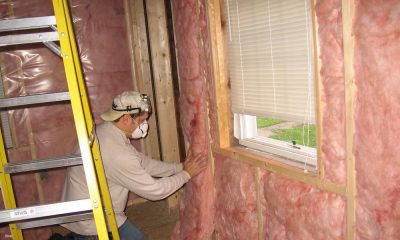General
What is material?
Historically anyone making changes to a unit title development needed either to complete a redevelopment plan or to cancel the unit title plan and start again. Both options needed unanimous consent from all of the owners.

Historically anyone making changes to a unit title development needed either to complete a redevelopment plan or to cancel the unit title plan and start again. Both options needed unanimous consent from all of the owners.
Things are different under the Unit Titles Act 2010 but there are still steps to be satisfied. Some of them are causing practical difficulties.
Simple boundary adjustments
Adjusting a boundary between units can now be done using a process set out in the Unit Titles Act 2010.
The method can be used if the “redevelopment consists solely of the adjustment of the boundary between 1 or more units shown on a unit plan”. A change in the location of the boundary between say unit A and unit B would be covered. It probably also covers a unit changing its boundary with the common property (i.e. the boundary “between 1” unit).
There is no need to obtain the consent of all of the registered proprietors to do a simple boundary adjustment. The owners of the units that will have their boundaries adjusted jointly make an application to LINZ for changes to the unit plan. The other owners are not required to sign. However, the process can only be used where:
- the adjustment does not “materially affect” the common property; and
- the adjustment does not “materially affect” the use, enjoyment or ownership interest of the units that aren’t having their boundaries changed.
A certificate will need to be provided by the body corporate confirming that this is the case. The chairperson of the body corporate will sign off the certificate and they will have to make a judgment about what amounts to ‘material”. There is no stated criteria. You can expect the chairperson to take extreme care.
A certificate is also required from a registered valuer as to the ownership interest of the units. The valuer must also state that the amendment to the unit plan does not affect the ownership interest of any unit that is not having its boundary adjusted. You can expect a valuer to use extreme care in giving any such certificate.
These additional steps mean that a simple boundary adjustment may not be quite so simple.
Redevelopment
All other changes to a unit plan are redevelopments and require a similar but more robust process to be followed. The body corporate (rather than just the affected owners) applies for the deposit of the new plan. Before doing so the body corporate must:
- ensure that all of the owners of the units that are materially affected by the redevelopment have consented in writing to the new unit plan; and
- pass a special resolution agreeing to the new unit plan.
The redevelopment will involve the inclusion of part of the common property and as a result a review, of the ownership interests.
Objection process
There is an objection process which can be used when a special resolution is passed to complete a redevelopment. Notice of the resolution must be given to every unit owner and all of the parties who have an interest over a unit. They each have the right to make an objection to the designated resolution. Once an objection is made the matter will be sent to the High Court for determination.
The Unit Titles Act 2010 does recognise the role of the tenancy tribunal in resolving disputes. However the tribunal does not have jurisdiction in relation to disputes relating to the title of land. A redevelopment or cancellation of a unit plan is a dispute relating to the title of land.
General
Growing Economy Increases Housing Demand
Auckland is New Zealand’s economic hub and with our economy set to continue to grow over the next couple of years demand for housing in Auckland will remain high. Property values in New Zealand have increased by more than 25 percent in 3 years and NZHerald also reports Auckland’s the median house has risen by 46.5% however there are investors buying Auckland residential property for less than market value.

Auckland is New Zealand’s economic hub and with our economy set to continue to grow over the next couple of years demand for housing in Auckland will remain high.
Property values in New Zealand have increased by more than 25 percent in 3 years and NZHerald also reports Auckland’s the median house has risen by 46.5% however there are investors buying Auckland residential property for less than market value.
For some investors in the Auckland property market the highly profitable property deals are apparently still out there. PropertyTutors mentoring clients have continued to buy residential property below market value in 2015. This month alone Lauren a new investor under the guidance of mentor Sean Wood bought two properties in 24 hours for less than the market price who would have thought it possible?
Also with demand for property at an all time high, investors like James and Elliot are managing to sell their properties whilst they’re still renovating them. This lowers the investor’s costs as there are no property marketing or listing fees.
Head of Trade Me Property Nigel Jeffries says the latest Property Price Index showed that while the average asking price in Auckland has risen by 20 per cent in the last year, small houses (1-2 bedrooms) had increased 24 per cent and apartments were up a “staggering” 49 per cent in a year.
Trade Me Sales Price Index
As long as our economy continues to grow, demand for Auckland housing in all its forms will be strong.
This blog article was written for PropertyBlogs by Mobilize Mail.
General
Nelson – Hot Location For Lifestyle
Baby boomers particularly those currently living in Auckland may be setting their sights on Nelson and who would blame them. Nelson offers the perfect lifestyle with a mediterranean climate, idyllic nature walks, sandy beaches, culinary delights and of course it’s one the cultural arts capitals of New Zealand too.

Baby boomers particularly those currently living in Auckland may be setting their sights on Nelson and who would blame them. Nelson offers the perfect lifestyle with a mediterranean climate, idyllic nature walks, sandy beaches, culinary delights and of course it’s one the cultural arts capitals of New Zealand too.
The house and land packages in Nelson are really too good to be true. Imagine selling your property in Auckland, capitalising on the high property values, and securing a better lifestyle in a brand new home (mortgage free) in one of the safest and friendliest places in the world! This was once a move only the wealthy could afford. Now it’s a reality for so many Aucklanders thanks to the buoyant property market.
The latest annual property sales report showed an increase in property values of 17 percent for Auckland. The average asking price for a property in Auckland starts at seven hundred and fifty thousand dollars, while in Nelson brand new home and land for sale deals start from two hundred and fifty thousand dollars.
Nelson is out of the spotlight and flying under the radar right now, but it may not last for much longer. The property market is on the move in this region with Trade Me Sales Price Index reporting property values up by over six percent during the last property sales season.
Aucklanders in their middle to late years of life will be questioning their current position. They will want to time their move so they can cash in their property equity to create a better lifestyle somewhere else; probably in New Zealand’s answer to the Med – Nelson!
This blog article was written for PropertyBlogs by Mobilize Mail.
General
Weekend Renters Trash Family Home
What can go possibly go wrong renting out your home for short term stays via a very reputable and popular online travel website? For most homeowners it all works out really well. However for this young Canadian couple it went horribly wrong.

What can go possibly go wrong renting out your home for short term stays via a very reputable and popular online travel website? For most homeowners it all works out really well. However for this young Canadian couple it went horribly wrong.
On NZHerald it was reported the young Canadian couple found out just how bad things can get when they rented out their home for a weekend. While the $875 rent was really attractive and it’s the reason so many other homeowners use the travel website Airbnb to rent out their properties on short stays, for this couple it was too good to be true.
An early txt message from a neighbour on Monday morning suggested not all was well at their home. Their weekend renters had well and truly trashed their home and caused $80,482 worth of damage to the property. Could this have been avoided? Well not entirely but like a goods trading site e.g. TradeMe where sellers and buyers build up a reputation for their trading activities the same applies on sites like Airbnb. Therefore as a renter or landlord you can review the feedback on the interested parties and make your selection based on it. It is unclear whether the Canadian couple took this action.
‘Caveat Emptor’ (buyer beware) is the lesson here – always do your due diligence on anyone interested in renting your property.
This blog article was written for PropertyBlogs by Mobilize Mail.
-

 Management5 years ago
Management5 years agoHome Insulation Requirements
-

 Investment5 years ago
Investment5 years agoAnother date NZ property investors are dreading
-

 Accounting & Finance5 years ago
Accounting & Finance5 years agoLow Interest Rates Winners and Losers
-

 Build5 years ago
Build5 years agoHow to Choose and Purchase a Suitable Property to Subdivide
-

 Management6 years ago
Management6 years agoAttracting More Business Travellers To Your Auckland Airbnb Property
-

 Investment6 years ago
Investment6 years agoWould You Be a Landlord in 2018?
-

 Tenants6 years ago
Tenants6 years agoCoworking Countdown – 4 Things to Prepare Before You Move In
-

 Renovations6 years ago
Renovations6 years agoFive easy steps to boost the appeal of your home








